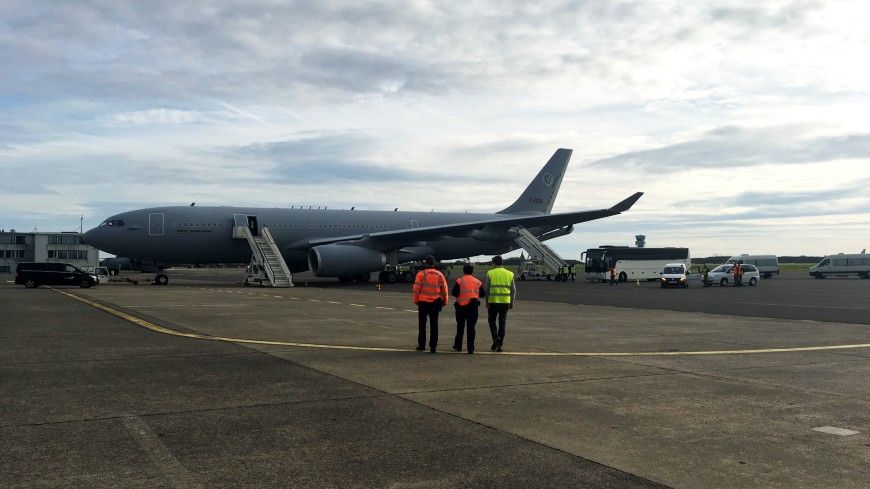The two reports examine the treatment and conditions of detention of foreign nationals deprived of their liberty under immigration legislation and the safeguards afforded to them in the context of their removal. The CPT sent, for the first time, two delegations to observe the preparations and conduct of a joint return operation (JRO) by air from Belgium and Cyprus to the Democratic Republic of Congo that took place on 8 November 2022. The return flight was organised by Belgium, with the participation among others of Cyprus, and was supported by the European Border and Coast Guard Agency (Frontex). This is the sixth removal operation by air monitored by the CPT over the past decade.
In its report on the visit to Belgium, the CPT noted that its delegation received no allegations of ill-treatment from the persons being removed. The Committee found that they were treated with respect by escort officers of the Belgian Federal Police throughout the removal operation which was carried out professionally. Nevertheless, the CPT considers that procedural safeguards against refoulement, including the legal remedies against the removal order, need to be further strengthened to ensure that no-one is sent back to a country where they run a real risk of ill-treatment. This risk should be adequately assessed at the time of removal.
As regards the use of force and means of restraint, the CPT takes note of the detailed guidelines and operational instructions issued by the Belgian authorities, which reflect the Committee’s position on this matter. It welcomes the proportionate and gradual resort to force and means of restraint demonstrated by all Federal Police escorts based on a dynamic security approach. Several recommendations are made to improve medical confidentiality and the transmission of medical information.
In the report on the visit to Cyprus, the CPT found that the persons being returned were treated with respect by the Cypriot Police but highlighted the need for clear guidelines on the flight preparations and the boarding procedure, including as regards health-related issues. It also became aware of allegations of ill-treatment after aborted removal attempts which took place in the months prior to the CPT’s visit. This requires that the Cypriot authorities take a proactive approach as regards the detection and prevention of ill-treatment, including the systematic medical screening of foreign nationals, upon their arrival at the immigration detention centre and after an aborted removal attempt, as well as the documenting and reporting of medical evidence of ill-treatment.
The CPT also makes specific recommendations aimed at improving safeguards in the context of the preparation for removal, namely as regards the timely notification of the removal, access to a lawyer and a medical examination by a doctor before the removal, in the context of a “fit-to-fly” assessment.
The Belgian authorities, in their response, note that measures have been engaged at European level to improve the way medical information is shared by member states participating in JROs with the medical doctor accompanying the flight. At national level, the authorities have taken steps towards improving the accessibility of information on the Frontex complaints mechanism. Further, the Belgian authorities refer to the existing laws, procedures and practices in reply to the CPT's recommendations to strengthen the safeguards against refoulement. The authorities also note that families with children are not held in immigration detention centres.
The Cypriot authorities, in their response, provide information on the ongoing investigations carried out into the cases of alleged ill-treatment raised by the CPT. The authorities also indicate the steps taken in relation to, among others, medical examinations, documenting and reporting of injuries, procedures for police escorts during forced and voluntary returns, the use of means of restraint, and the provision of interpretation services and training for escort officers. Moreover, they indicate that, as matter of public policy, no vulnerable persons are being detained in immigration detention, including unaccompanied minors or families with children.
The two reports and responses have been published at the request of the Belgian and Cypriot authorities.
Belgium:
- Read the report (in English, in French)
- Read the executive summary (in English, in French)
- Read the Government response (in French only)
- The CPT and Belgium
Cyprus:



